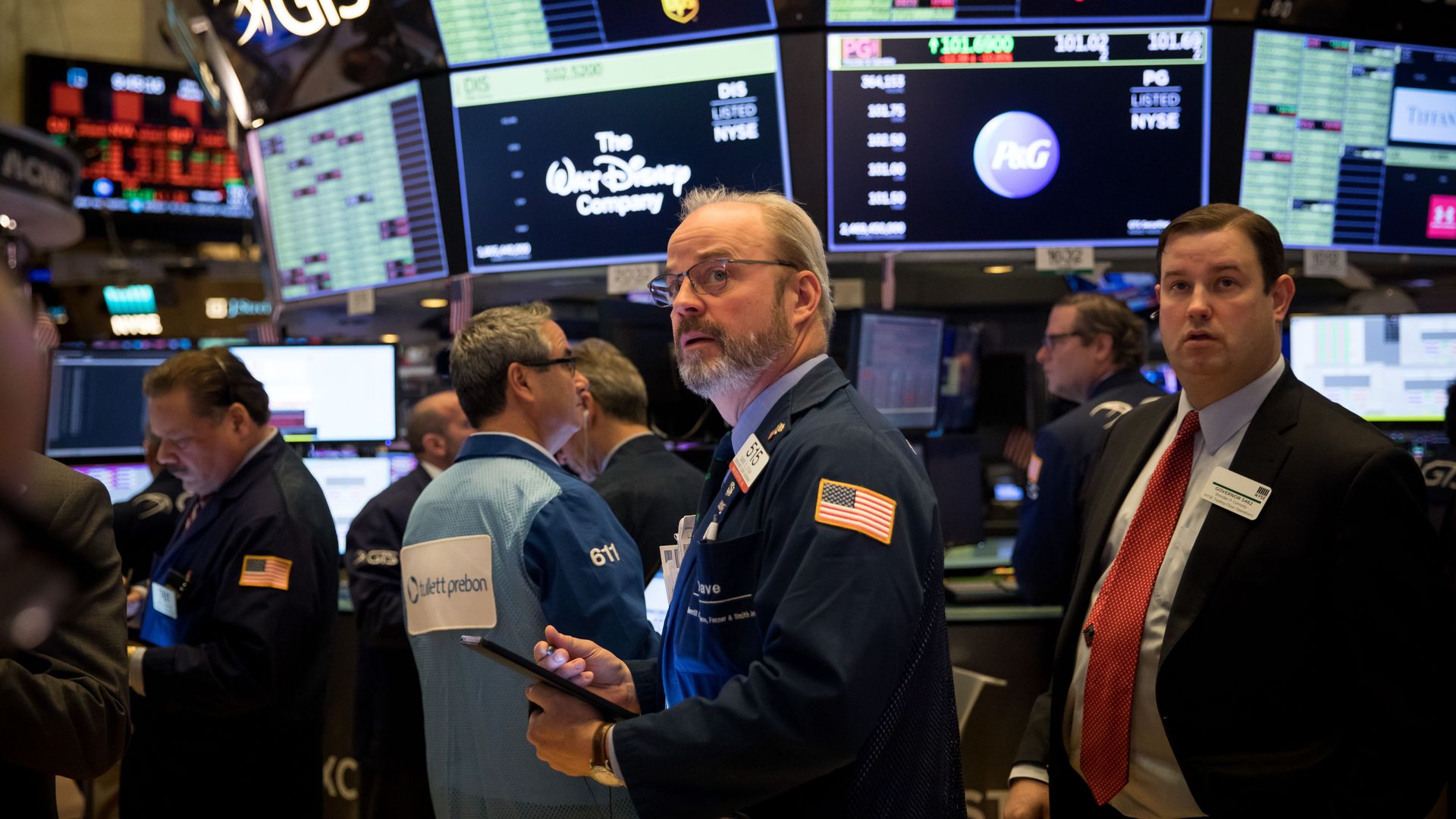Explaining the Dow's 3,000-point decline
Add Axios as your preferred source to
see more of our stories on Google.

Photo: Michael Nagle/Xinhua via Getty
U.S. stock indexes had their worst day on Monday since 1987's Black Monday — a headline journalists had written just on Thursday, but Monday was worse. The S&P 500 and Nasdaq closed 12% lower, the worst day in the tech-heavy index's 49-year history, while the Dow fell by almost 3,000 points.
Driving the news: The selloff accelerated during President Trump's afternoon press conference during which he outlined new recommendations for Americans that included avoiding any gatherings of 10 or more people.
- Trump noted that the U.S. "may be" heading into recession and suggested the outbreak could continue until July or August.
- The president's comments followed an earlier announcement that New York, New Jersey, and Connecticut would ban gatherings of more than 50 people, close gyms, bars, theaters and casinos, and limit restaurants to take-out orders only, citing an absence of federal action.
What they're saying: “The market didn’t hear what it wanted to hear. I don’t think that it wanted to hear that this was going to last until July and August, and now the market does the math," BNY Mellon strategist Liz Young said in an interview with CNBC.
- "If it lasts until July and August, that means we maybe have a contraction in the second quarter and the third quarter, and that means recession.”
What they're not saying: Treasury Secretary Steven Mnuchin said the White House was meeting with Senate Republicans but did not announce an imminent U.S. stimulus bill or any coordinated global action to combat the economic toll of the outbreak.
Watch this space: Trump suggested the government could provide bailouts for airlines, which are in dire need of cash. However, a recent Bloomberg analysis found that the largest U.S. airlines have spent 96% of their free cash flow on stock buybacks.
Go deeper: Stocks have worst day since 1987
